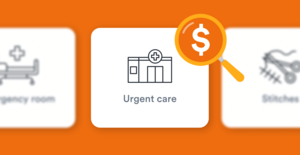Cholesterol Testing
A cholesterol test is a blood test that measures the amount of cholesterol you have in your blood. High amounts of cholesterol can clog your arteries and increase the risk for serious conditions such as heart disease and stroke. This test can help you and your doctor find out whether it’s time for you to make healthy lifestyle changes that can reduce your cholesterol levels.
Who should get a cholesterol test?
A cholesterol test can benefit anyone of any age. Your cholesterol should be checked starting early in life, reports the Centers for Disease Control and Prevention (CDC). It says children and teens should have their cholesterol checked at least one time between the ages of nine and 11, and again between the ages of 17 and 21. Healthy adults should have a cholesterol test every four to six years.
You may need to have your cholesterol checked more frequently if you meet risk factors for high cholesterol. Risk factors of high cholesterol, according to the U.S. Department of Health and Human Services (DHHS), include:
- Age
- Smoking
- Alcohol use
- Lack of exercise
- Poor nutrition—eating high amounts of saturated fats and low amounts of fruits and vegetables may lead to high cholesterol
- Certain medications, including those used to lower blood pressure
- Family history of high cholesterol
- Familial hypercholesterolemia—this is a genetic condition passed down through families that causes very high “bad” cholesterol levels
- Certain health problems—diabetes, heart disease, and obesity are some of many conditions that may lead to high cholesterol
The National Library of Medicine (NLM) reports that men should have their first cholesterol test by the age of 35 and that women should have their first cholesterol test by the age of 45. It adds that follow-up testing should be done every five years if your test results are normal, and every year if you are taking medication to control your cholesterol level.
Ask your doctor about the frequency at which you should have your cholesterol checked. Your doctor can review your medical history, determine whether you meet risk factors for high cholesterol, and recommend when you should be tested.
How to get a cholesterol test
Talk to your doctor if you think you need a cholesterol test. Your doctor may perform this test during your next appointment or give you a referral to a walk-in clinic or lab that offers this test.
Another way to find out how to get a cholesterol test is to use Solv. Solv features a directory that allows you to identify providers near you that offer this test. Then, you can contact that provider directly to request an appointment or book an appointment from Solv.
What is a cholesterol test used for?
The NLM notes that a cholesterol test is used to tell you how much cholesterol you have in your blood. It can reveal whether you are at risk for chronic conditions like heart disease, and whether you could benefit from making certain lifestyle changes that can lower your cholesterol.
A cholesterol test measures the following, according to the NLM:
- Low-density lipoprotein (LDL cholesterol). Also known as “bad” cholesterol, LDL is the main source of clogs, or blockages, in the arteries.
- High-density lipoprotein (HDL cholesterol). Also known as “good” cholesterol, HDL helps destroy bad cholesterol.
- Total cholesterol. This is the combined amount of LDL and HDL in your blood.
- Triglycerides. These are a type of fat in your blood. High levels of triglycerides may increase your risk for heart disease.
- Very low-density lipoprotein (VLDL cholesterol). This is another type of “bad” cholesterol that is linked to plaque buildup in the arteries. Triglycerides make up about 50% of your VLDL.
Why would I need a cholesterol test?
The NLM reports that your doctor may order a cholesterol test as part of a routine physical or exam. It says you may also need a cholesterol test if heart disease runs in your family or if you are at risk for having heart problems. Risk factors for heart problems include:
- High blood pressure
- Smoking
- Type 2 diabetes
- Obesity, or being overweight
- Lack of physical activity
- Poor nutrition (a diet high in saturated fat)
- Age
Your doctor can talk to you in greater detail about why you may need a cholesterol test based on your health status and medical history.
What do the results of a cholesterol test mean?
Generally, you want to have low levels of LDL (“bad” cholesterol) and high levels of HDL (good cholesterol). Cholesterol is usually measured in milligrams (mg) of cholesterol per deciliter (dL) of blood. Your doctor or the cholesterol testing provider can help you interpret and understand your results if you’re not sure what they mean.
Here’s how cholesterol levels are categorized, according to the NLM:
- Total cholesterol. 240 mg/dL and above is high, 200 to 239 mg/dL is borderline high, and less than 200 mg/dL is desirable.
- LDL cholesterol. 190 mg/dL and above is very high, 160 to 189 mg/dL is high, 130 to 159 mg/dL is borderline high, 100 to 129 mg/dL is near optimal, and less than 100 mg/dL is optimal.
- HDL cholesterol. Less than 40 mg/dL is a major risk factor for heart disease, 40 to 59 is considered better, and 60 mg/dL and higher is considered protective against heart disease.
Sometimes, the results of your LDL cholesterol may say “calculated,” which means that this result is an estimate based on your HDL, triglycerides, and total cholesterol. The NLM says your LDL level may also be measured “directly” from your blood sample.
Find Cholesterol Testing near you
- Alabama
- Alaska
- Arizona
- Arkansas
- California
- Colorado
- Connecticut
- Delaware
- Florida
- Georgia
- Hawaii
- Idaho
- Illinois
- Indiana
- Iowa
- Kansas
- Kentucky
- Louisiana
- Maine
- Maryland
- Massachusetts
- Michigan
- Minnesota
- Mississippi
- Missouri
- Montana
- Nebraska
- Nevada
- New Hampshire
- New Jersey
- New Mexico
- New York
- North Carolina
- North Dakota
- Ohio
- Oklahoma
- Oregon
- Pennsylvania
- Rhode Island
- South Carolina
- South Dakota
- Tennessee
- Texas
- Utah
- Vermont
- Virginia
- Washington
- Washington DC
- West Virginia
- Wisconsin
- Wyoming
Cholesterol Testing FAQs
How do I prepare for a cholesterol test?
You may need to fast for between nine and 12 hours before your cholesterol test, reports the NLM. Many times, a cholesterol test is performed in the morning. The testing provider can tell you what else you may need to do to prepare for this test.
What are the risks of getting a cholesterol test?
A cholesterol test is performed as a blood test. It comes with very little risk, though you may experience slight pain or bruising at the needle insertion site, says the NLM. It adds that these symptoms usually go away relatively quickly.
What happens during a cholesterol test?
During a cholesterol test, a healthcare worker will use a tiny needle to draw a small sample of blood from a vein in your arm. The entire process takes less than five minutes, says the NLM. You may experience a slight sting when the needle goes in and out.
What are other names for a cholesterol test?
A cholesterol test may also be referred to as a lipid profile or lipid panel, reports the NLM. When meeting with your doctor for a routine exam or physical, ask to confirm whether you will be having a cholesterol test.
When should I get a cholesterol test?
You should get a cholesterol test every four to six years, says the DHHS. The NLM says men should have their first cholesterol test by the age of 35, and that women should have their first test by the age of 45.
How can I tell if my cholesterol is too high?
The results of your cholesterol test will reveal whether your cholesterol is too high. An LDL cholesterol of 190 mg/dL and above is very high, 160 to 189 mg/dL is high, and 130 to 159 mg/dL is borderline high. Your doctor can help you understand your results.
What can cause high cholesterol levels?
Many factors can cause you to have high cholesterol. These factors include smoking, obesity, poor nutrition, lack of exercise, alcohol use, certain medications, and a family history of high cholesterol, reports the DHHS.
What happens if my cholesterol levels are too high?
If the results of your cholesterol test show that your cholesterol is too high, your doctor may work with you to modify your lifestyle as needed to bring down your cholesterol. This may involve changing your diet, establishing an exercise routine, and losing excess weight, notes MedlinePlus. Sometimes lifestyle changes are not enough and specific medications are required to lower your cholesterol.
What is the cost of a cholesterol test?
The cost of a cholesterol test depends on factors such as your geographical location, testing fees set by the healthcare provider, and whether this test is covered by your health insurance plan. Contact the cholesterol test provider directly to find out how much this test will cost.
Solv has strict sourcing guidelines and relies on peer-reviewed studies, academic research institutions, and medical associations. We avoid using tertiary references.
Everyday Healthcare, Simplified
Expert advice to help you live your best life

 LinkedIn
LinkedIn


